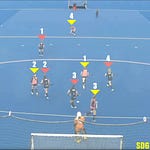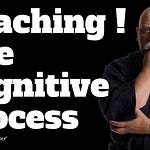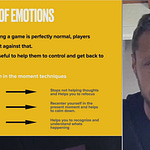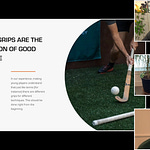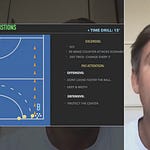Common themes of top teams is the topic for this 90 minute masterclass by Adam Commens we hosted in December 2022.
Adam Commens
Former international player for Australia 🇦🇺, Adam Commens, found a new home in Belgium 🇧🇪. As a coach he was the one who qualified Belgium for the first time in almost 4 decades for the Olympics again (Beijing 2008). He coached his original home country Australia at the Rio Olympics before returning to Belgium where he became the high performance director overseeing all national teams and youth development.
As such he was one of the architects of the meteoric rise of Belgium culminating in gold medals at the World Cup (2018) and Olympics (Tokyo 2021). Commens delivered an earlier masterclass on Values Based Coaching, one we highly recommend as well 😉
One lesson to take home
If I had to focus on just one lesson that rises above the rest, it is this: connection with your players and within your team is more important than tactics.
Plenty of coaches are obsessed with finding a magic formation, a unique penalty corner routine, or squeezing tactical juice out of training schedules. But looking at the sustained success of world-class outfits—from the early 2000s Australian Kookaburras to the modern Belgian Red Lions—the consistent thread isn’t just tactical innovation, but a deep, purpose-driven connection within the group.
Why Does Connection Matter? Technical and tactical excellence is a given at elite levels. Every national program, every top club, is full of astute tacticians and skilled players. But what allows teams to execute under pressure, adapt mid-tournament, or weather adversity isn’t merely technical work—it’s trust, clarity, and shared purpose among the group.
As Adam Commens put it:
“Connection is more important than tactics... Both teams that won gold spent an enormous amount of time learning the ‘why’ behind each individual.”
There’s a growing recognition that connection fuels performance. Commens noted that Shane McLeod, in guiding Belgium to Olympic gold, spent huge amounts of time in one-on-one conversations with players. Not to be best friends, but to understand what made them tick—why they put in the extra hours, what their dreams were, what feedback resonated. That investment allowed the coaching staff to deliver the right messages in the highest-pressure moments, giving players the ability to trust the process and deliver.
How to Implement This as a Coach
So, how do you action this philosophy in your day-to-day coaching?
Prioritise Individual Conversations: Dedicate time each week to check in with players, not just about hockey, but about their goals, motivation, and well-being. Ask meaningful questions—Why are they here? What do they want from you and the team? What do they bring to the group?
Use Connection to Guide Selection and Feedback: Rather than relying solely on form and data, understand individual personalities and how each fits into the broader squad. Connection allows for honest conversations about roles, expectations, and areas for growth.
Celebrate Unique Contributions: Make a point to identify and acknowledge each player’s “superpower”—the unique quality they offer the group, as Commens called it—and couple that to a broader team objective.
Create Small Moments of Trust: Consistently show players you’re available. Be open about selection. Offer feedback with empathy. Demonstrate, in actions more than words, that you care about their progression on and off the pitch.
The bottom line: You can run the best drills or have the most robust tactical model, but unless your group is tightly connected, honest, and aligned, you’re putting a ceiling on your team’s potential.
“If you nail [connection], then you’ve gone a long way to becoming a really high-level coach.” – Adam Commens
Why Watch the Whole Masterclass?
This session is a goldmine for any field hockey coach looking to challenge their current mindset. Beyond the headlines, Adam Commens peels back the curtain on actual methods—not theory—used to create Olympics-winning cultures. He doesn’t just talk about connection, but how to cultivate it; not just about “working hard,” but raising the quality bar; not just about building a winning environment, but how to genuinely transform a good group into a great one. The nuances, practical anecdotes, and candid look at mistakes as well as successes are worth every minute—and every coach will come away with actions they can apply this week.
Ready to go deeper? Scroll below for the three main takeaways and candid, practical advice to use in your coaching tomorrow.Part 2: [Subscribers Only] The Three Most Impactful Takeaways for Field Hockey Coaches
Let’s dig deeper into the main lessons from Adam Commens’ session—not just the what, but the how, and how you can apply them every week with your team.
1. Build Genuine Connection: The Foundation of High Performance
There’s a reason “connection” leads this list. Commens draws a clear line from team ethos to execution and, ultimately, to results.
What does connection mean in practice?
Understanding the “why” for each player. Commens describes how top coaches like Shane McLeod would spend long hours with each athlete, asking what motivates them, what goals they have, and even how they like to receive feedback. This isn’t soft stuff—it’s about arming yourself, as coach, to communicate in a way that lands when pressure’s at its highest.
“You need to really understand each of the individuals that you’re working with and form a connection with them. You don’t have to be best friends, but you need to understand where these athletes come from, why they are doing what they’re doing, and what really makes them tick.” – Adam Commens
Personal accountability through relationships. With connection comes the environment for honest conversations. Players know where they stand—about selection, about expectations, about performance under pressure.
Building trust with clarity. Connection leads to trust, which is essential when you need players to adhere to a process even when results aren’t immediate. As Commens said of the Kookaburras’ Olympic run, belief in the process and their collective preparation allowed them to stay on task until the final whistle.
Practical steps:
Make weekly space for intentional 1-on-1s with players, even for just 10 minutes.
At squad meetings, routinely revisit shared goals, roles, and the behaviours that signal trust and support in the group.
As a staff, audit (honestly) whether the methods and the messaging are adapted to your current group, not just inherited doctrine.
Real-world Example:
Commens noted how, across both Australia (2004) and Belgium (2021), even legends of the game embraced this connected approach. “Those guys are probably as much in charge of the strategic decisions on the pitch than as what, what the coaches were off the pitch.”
This type of empowerment is only possible when there’s genuine, two-way connection—not just top-down dictation.
2. Raise the Quality Bar: Hard Work is a Given, Quality Makes the Difference
No international squad, and very few ambitious clubs, lack for effort. The challenge is differentiating your group through quality and unique value.
Key lessons:
Everyone works hard—what sets you apart? As Commens shared, “At the top level, everybody works hard. Hard work is a given. But really what makes a difference is the quality of everything that you do.”
Identify and grow “superpowers.” Each squad member must bring a unique, value-adding element—what in Belgium was coined as a “superpower.” For some, that might be drag flicks; for others, reliability, game sense, or ability to connect lines.
Quality is coachable. In the masterclass, Commens gives practical methods to embed quality as a non-negotiable standard. For example, he describes one session with the Belgian development squad where any poor pass or substandard first touch was instantly whistled. Not to criticize, but to create an external pressure so high standards became the new normal:
“If you pass the ball at an international speed with international accuracy, then I won’t blow the whistle. If it’s too slow, it’s bouncy, it’s inaccurate, then I just blow the whistle… It’s just challenging you with some pressure from—you know, everything will be scrutinized, that you’ve got a little bit of external pressure put onto you by the coach.”
In minutes, subpar habits turned into international-level execution—because expectation shifted.
Practical steps:
Design training exercises with clear, unambiguous quality triggers. Use simple cues (like a whistle, visible markers) so players know immediately if they fall below standards.
Shift feedback away from general praise for “hard work,” and laser in on specific moments of high-quality execution. Show players how their unique skills add to team outcomes.
Regularly review, as a staff, what unique value each squad member brings, and design sessions to foster (not standardize or suppress) these.
Dealing with reality:
Sometimes, you’ll have players who work relentlessly but lack exceptional qualities, and others who are outstanding but less committed. Commens is clear:
“…Just working hard and being committed and having a good attitude is not enough at the top level… as coaches, if we have an athlete that maybe is a little bit lazy or they don’t commit as much, but they do have the talent. Again, it goes back to… creating an environment where that talent and that, that will be encouraged to flourish.”
Bottom line—talent needs to work hard, but the bar for selection always includes some measure of unique value or “superpower” that can impact the game.
3. Model and Reinforce Team Culture: Connection, Accountability, and the Drive for Excellence
Behind every successful team is a culture that isn’t just spoken, but lived—and that culture must be actively built, not passively observed.
What drives elite team culture?
Ownership at every level. In both the Athens Kookaburras and 2021 Red Lions, the push for standards didn’t originate solely from staff. Players themselves held each other accountable for early arrival, preparation, and off-field behaviours. As one observer commented, “the coach set the culture and the players drove it.”
Trust and clarity in roles. When late selection or squad changes happened (such as Adam Commens losing out on Athens selection to Michael Brennan), it created awkwardness, but because the group’s foundation was strong, mateship and respect won out. When it doesn’t, Commens says, “I think it goes back to the culture that you’re trying to create and you ensure that everybody within the group understands that we need each other to get that success… We try to create a shared vision about where we’re going.”
Healthy competition and no complacency. Both successful teams cited in the masterclass had deep squads—not just 16 or 18, but competitive depth. Youngsters pushing for places force the established to raise their game, and vice versa.
Physical and behavioral standards are contagious. From Livermore riding to training, to the Red Lions’ gym culture, small individual actions set precedents that become team norms.
Practical steps for coaches:
Be explicit about the standards. If “arrive 30 minutes early” is the goal, reward it, call it out, and make it a living expectation.
Foster open discussions between players, especially those competing for roles, to build understanding—not necessarily friendship, but mutual respect.
Create pathways for young or fringe players to push for spots. Ensure training and selection are competitive, never complacent.
Take time to clarify not just what is expected, but why—it’s about more than rules, but about mutual improvement and belief.
On integrating new or fringe players:
When squad changes occur or competition for places is intense, coaches must manage both individual disappointment and team continuity. Commens reflects that “as coaches, if we have an athlete that maybe is a little bit lazy or they don’t commit as much, but they do have the talent… try to create an environment where they’re challenged, to bring that creativity and talent to the team.” But above all—honesty, clarity about where players stand, and empathetic communication are non-negotiable.
In Summary
The coaching journey is never static, and the ceiling for your impact isn’t measured just by results or knowledge of the latest tactics. Based on Adam Commens’ masterclass, three enduring lessons stand out:
Connection comes first: Invest deeply in understanding your players—why they’re there, and what makes them unique.
Quality sets you apart: Hard work is table stakes. Build habits and training interventions that explicitly raise quality and promote value-adding skills.
Embed and evolve your culture: Team standards and trust aren’t just byproducts of success. They’re built, nurtured, and modelled day after day—through open communication, accountability, and living your “why.”
As you reflect on your own coaching, the take-home isn’t to copy another team’s model, but to focus relentlessly on building connection, demanding quality, and reinforcing a culture that stretches everyone to their best. These themes, drawn from teams that reached the summit, are just as relevant for the next training session as they are for Olympic finals.
Take them, adapt them, and—most of all—live them.









